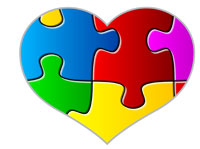
LOVE IS the theme of so many songs, films, operas and plays.
Everyone from Shakespeare to Britney Spears has been inspired by the consequences of love.
But for all the joy love can bring it can also be the cause of great pain, even heartbreak.
Since its release in 1992, American author and counsellor Dr Gary Chapman’s book The Five Love Languages has sold over five million copies.
After many other versions, including men’s and women’s editions and one called God Speaks Your Love Language, Dr Chapman’s simple theory continues to fascinate me.
His premise is that there are five languages of love in which people give and receive love best: words of affirmation, quality time, receiving gifts, acts of service, and physical touch.
Dr Chapman says that each person has a “primary way of expressing and interpreting love”.
Some people love giving. They are the people who take time and think about what to get someone. They probably even have a ‘gifts’ drawer in their house!
I never understood why people wanted to give me things I didn’t need. Clearly my language of love is not “receiving gifts”.
But it is the language of two members of my family. So despite not really speaking that language I must remember to post their birthday gifts on time and even to get them gifts for no reason at all. Simple really.
It is amazing how understanding another language can open your eyes. Give it a try. What love language do you speak? What language do your children or parents speak?
I can’t think of a better Valentine’s Day gift than that of understanding … after all, “receiving gifts” is not my love language.
Find out more at www.5lovelanguages.com
Photo: Image by Artiom Chernyshevich
 JourneyOnline
JourneyOnline






